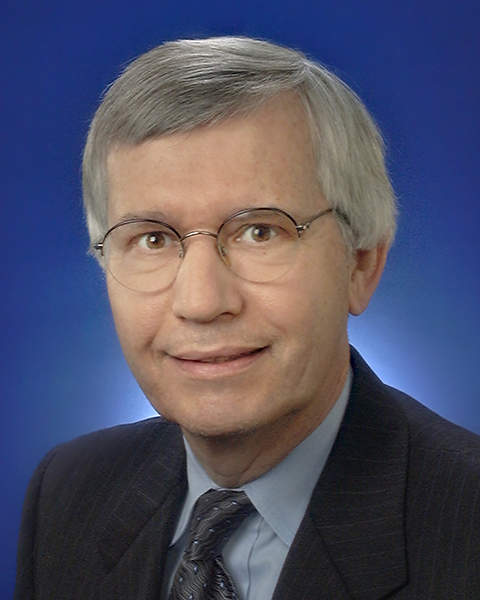Joseph S. Alford
Eli Lilly and Company (retired)
For his championing of key technical and auditing practices in the bio-pharma industry leading to the in-house design, development, validation, implementation, and application of computer based process automation and data historian systems.
Read More
Engineering Advisor
Eli Lilly and Company (retired)
For his championing of key technical and auditing practices in the bio-pharma industry leading to the in-house design, development, validation, implementation, and application of computer based process automation and data historian systems.
Life consists of three phases: learning, earning, and then returning.
— Alan Loy McGinnis
Career Highlights
| 2007-present | Automation Consultant, pharmaceutical industry |
|---|---|
| 2002-2006 | Engineering Advisor, Lilly Corporate Engineering Technology Center |
| 1991–2002 | Head, Advanced Process Technologies Group, Eli Lilly and Co. |
| 1986-1991 | Chief Corporate Quality Assurance Auditor, GMP and GLP Computer Validation; Head, Life Science Automation Projects and Plant Computer Support, Eli Lilly and Co. |
| 1979-1986 | Research Scientist; Head, Life Science Automation Projects, Eli Lilly and Co. |
| 1972-1979 | Senior Scientist, Eli Lilly and Co. |
| 1966-1968 | Division Officer, Boiler and Electrical Departments; Qualified Operations Watch Officer, Engineering Plant, Attack Aircraft Carrier – USS Coral Sea, U.S. Navy |
| 1966 | BS Chemical Engineering, Purdue University |
| 1972 | MS Chemical Engineering, University of Cincinnati |
| 1972 | PhD Chemical Engineering, University of Cincinnati |
Biography
 Beyond the basics of chemical engineering and the thirst to learn more, Joseph Alford says Purdue gave him an understanding of “the value of staying informed as to opportunities of interest.”
Beyond the basics of chemical engineering and the thirst to learn more, Joseph Alford says Purdue gave him an understanding of “the value of staying informed as to opportunities of interest.”
Alford says that he jumped at social as well as professional opportunities while he was a student: “I did just that when Purdue announced its computer match dance — the first ever in the Midwest — and there I met my future wife in front of NBC and CBS regional television cameras.”
After decades of mastering professional opportunities, Alford became a member of the Process Automation Hall of Fame. He is a widely recognized leader in bioprocess automation, batch process control, computer system validation, on-line data analysis, alarm management, process analytical technologies, and applications of artificial intelligence. He has received Eli Lilly’s top three corporate technology awards in engineering, product/process development, and information technology, and has received national automation technology awards from both the American Institute of Chemical Engineers (AIChE) and the International Society of Automation (ISA).
Alford, a fellow of both AIChE and ISA, also has received Purdue’s Davidson School of Chemical Engineering’s Outstanding Chemical Engineer Award and the University of Cincinnati College of Engineering’s Distinguished Alumnus Award.
Alford’s father, a chief jet engine designer for General Electric, set a high bar for his children. Alford says his father often repeated the adage that success is 1% inspiration and 99% perspiration.
Those words hit home for Alford as he struggled with honors math and chemistry as a freshman. “That experience indicated that being proficient at math and science is a necessary, but not sufficient, condition for academic engineering success,” he says. “That epiphany has stayed with me since then as a constant reminder that an important ingredient for success is hard work.
“An Eli Lilly vice president convinced me to modify this motto to ‘success requires one to work hard and work smart.’”
In living out that motto, Alford capitalizes on the wisdom gained when disciplines are combined, and he follows Purdue’s leadership in such research and development efforts.
“In recent years, Purdue has been on the leading edge in working on interdisciplinary initiatives,” he says. “In citing examples of the benefits of an interdisciplinary approach to certain applications and challenges, one needs to look no further than the skill set needed for process automation.”
Alford’s accomplishments bear out the wisdom in his work. He says the teams he has led that have achieved major advances in “the control of life science manufacturing processes,” are among the achievements that make him most proud.
“I led the team that automated the world’s first commercial bioprocess plant in which a product (human insulin) was made from man-modified microorganisms using recombinant DNA technology,” Alford says. “The success of this project contributed to the eventual elimination of dependence on animal pancreas glands as a source of insulin.”
He tells students today, “Career success depends more on working well together in teams than it does on individual pursuits. Remember, there is no “i” in the word “team.” We are dependent on one another.”
